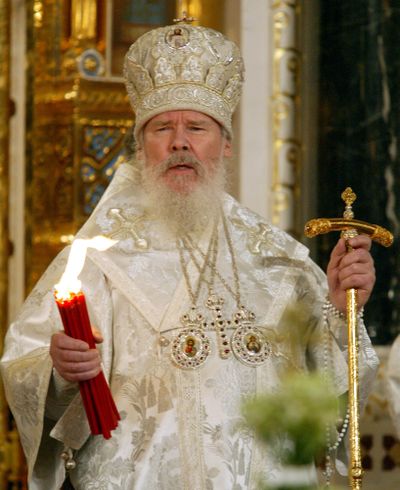Russian Orthodox leader dies at home

MOSCOW – Russian Orthodox Patriarch Alexy II, the iconic religious leader who restored the church from a post-Soviet shell to an institution of privilege and power, died at his Moscow home Friday. He was 79.
The imposing, white-bearded Alexy had held the Russian Orthodox Church’s top seat for the past 18 years, an era that witnessed the collapse of the Soviet Union and the rebirth of Russia as a powerful, centralized state under the steely leadership of Prime Minister and former President Vladimir Putin.
Alexy was celebrated for healing a painful rift with the Russian Orthodox Church Outside Russia, a splinter faction established by White Guard Russians who fled the Soviet Union for the West. The Russian patriarch signed a pact with Metropolitan Laurus in 2007, putting an end to the bitter, 80-year schism.
Alexy had been a fervent supporter of Putin and President Dmitry Medvedev, whose public observance of Orthodox rites helped restore the church’s image in Russian popular culture. Under the dual reigns of Putin and Alexy, Russia moved back toward its former imperial system of a powerful, centralized authority supported by – and supporting – a national church.
“Not only was he a prominent figure in the history of the Russian Orthodox Church, but also a great statesman,” Putin said Friday. “He did a great deal to help establish a new governance system in Russia.”
Medvedev, meanwhile, canceled a planned trip to Italy to mourn a leader he credited with turning the church into “one of the influential institutions fruitfully interacting with the state,” the Interfax news agency reported.
“We deeply grieve his demise,” Medvedev said. “It is a great loss for me personally, as well.”
Alexy’s funeral is expected to be held this weekend at Moscow’s Christ the Savior Cathedral, a landmark flattened by Josef Stalin and rebuilt as a symbol of the church’s resurgent role in Russian life. He will be buried at Moscow’s Epiphany Cathedral.